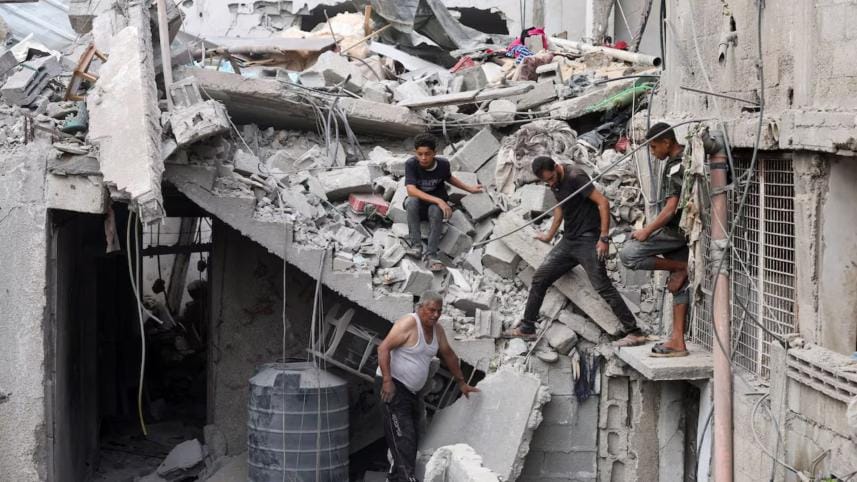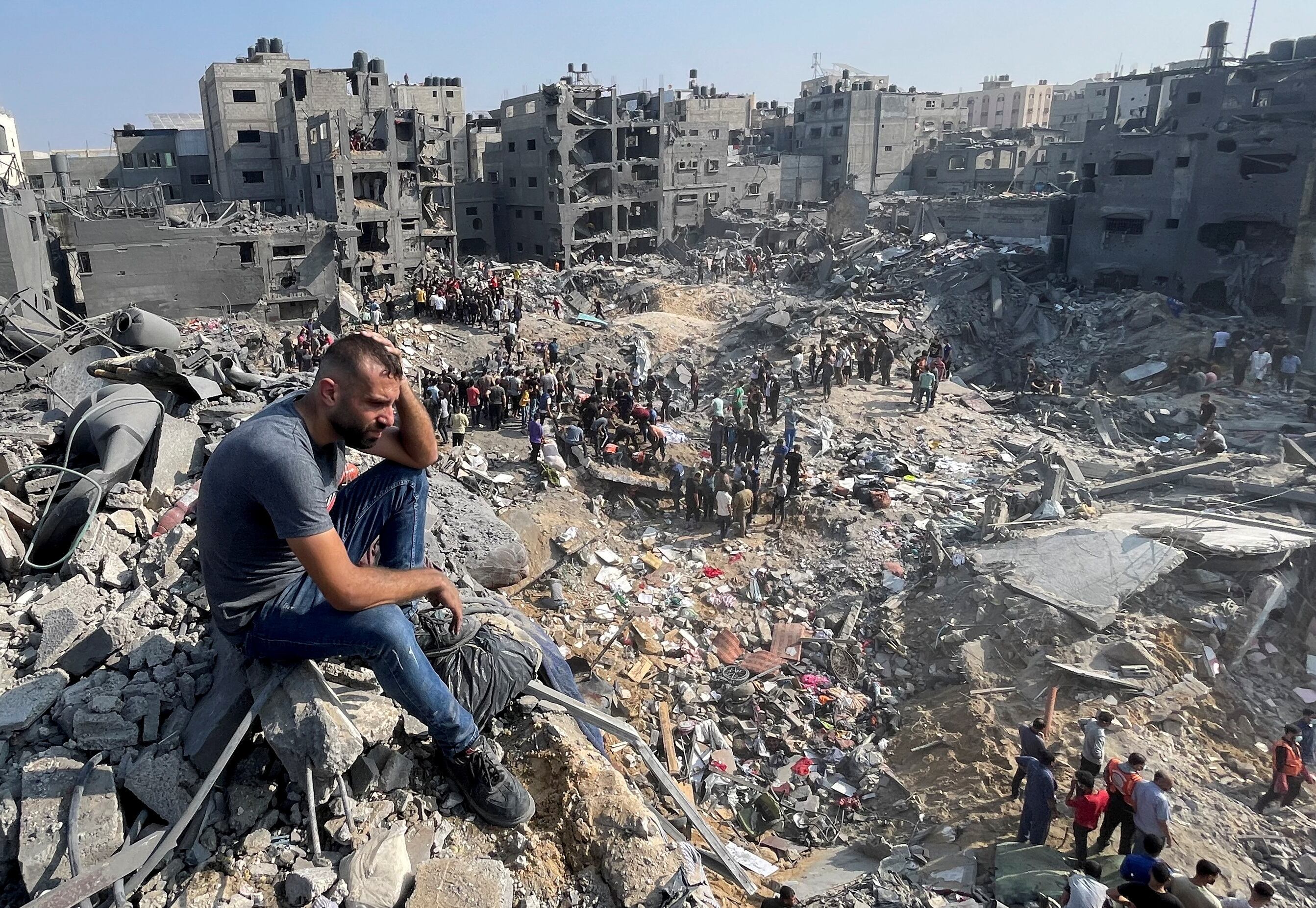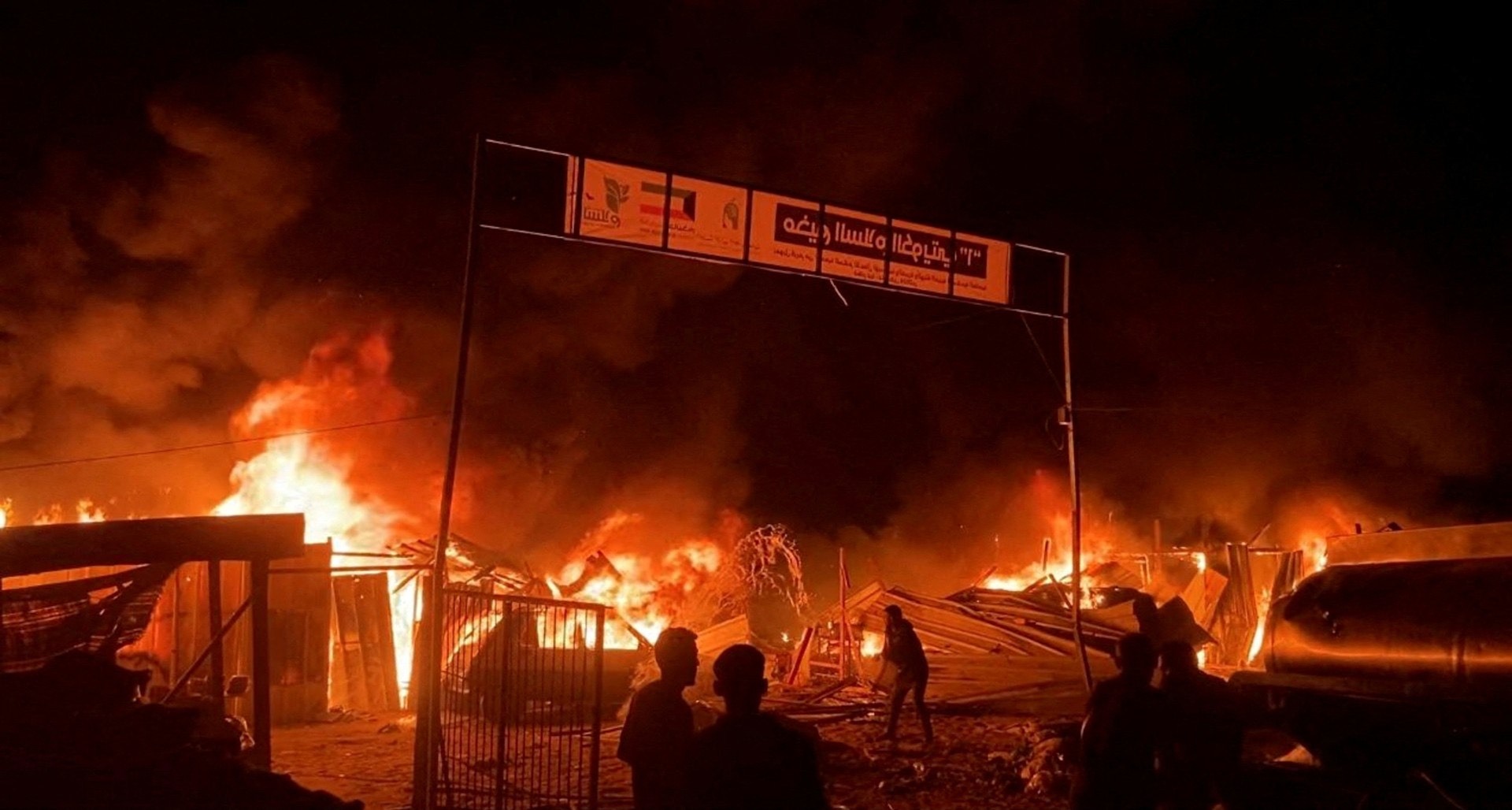Before I answer, what exactly is the 'Palestine question'?

As personally invested as I am in the Palestinian people's struggle for autonomy and freedom, there most definitely exists wide gaps within the disconnected pools of my knowledge (read: not understanding) regarding the history of the conflict. But, as far as I am aware, when generally referring to "The Palestine Question," it is done so with inherently problematic assumptions, none of which I believe apply to most people reading this.
As far as most have likely come to understand, the question may roughly be paraphrased as such: "What do we do with these Palestinians we've forcefully displaced and continue to subjugate without completely losing our moral standing on the global stage?"
As such, "our" answer to the so-called "Question of Palestine" is, in fact, neither required nor desired; it is a question exclusive to the coloniser class, whose impressive resumés spanning centuries have provided them with significant experience on the matter, having answered the same question for ethnicities and nationalities as diverse as the very non-Western world itself (a coincidence, I'm sure). In some way or form, they have "successfully" answered the Question, forced to confront the dilemma of how to "settle" (pun very much intended) the issue of some group of people that they are struggling to oppress.
As an individual who has not tasted the intoxicating aftertaste of such extreme levels of power imbalance with other human beings)—something most of us practice an amateur version of in our homes (not to minimise those struggles, of course)— I remain fortunate to not have had to answer a question as difficult.
I can with some conviction assert there, in fact, is no "Question of Palestine" in any form that the West and most of its inherently undemocratic and flaccid globalist appendages would have us believe, in the same way there is no "Question of Israel." There may exist a "Problem of Palestine," which should really be "The Problem for Palestinians," but the question itself is audacious in its insensitivity. A good analogy would be the way an older person might blame the current state of affairs on current or newer generations.
The response, in both cases, can simply look something like this: "You created this mess. We didn't."
Israel's existence as a settler-colonial-genocidal-apartheid-ethno-state (Western ideals funding the only democracy in the Middle East, ladies and gentlemen is an inherent injustice that must be assigned labels that are worthy of its continued supremacist behaviour: There is no "understanding" it, or "question" that must be answered in order to figure out what is one of the simplest moral conundrums most of us will ever have the privilege to face.
And if there are any questions at all to be answered, it would be the Palestinians asking and answering them. A few examples: "Should we generously allow the Israelis to remain? How should those who stole our land and treated us like 'human animals' be punished? And to what extent?"
In a just world, the Palestinians would be debating the moral grey areas that exist within these questions. But asking the West's version of the Palestinian question, or worse, attempting to answer it, is starting from a position of defeat. It is a question that must be outright dismissed as illegitimate.
What I hope to achieve, both for myself and individuals who may not have been exposed to this particular approach to the subject, is to put forth a stance that refuses to cower in the face of colonisrs old and new, from the Bengal famine Brits to the American imperialists modernised by hypocrisy, toppling democratically elected leaders—this year, an in-house coup—and providing weapons and cover to a genocidal foreign regime while ignoring its own citizens in the midst of a natural disaster.
In this Land of the Free and Home of the Brave, money is Supreme Court-sanctioned free speech, but criticism of Israel isn't. Even in our worst forms, as our ugliest selves, when the most toxic and harmful of our traits are revealed, most of us can rest certain in the knowledge of our moral adequacy compared to those who have carried out, supported, defended, armed, and excused the widespread displacement and annihilation of the Palestinians (with methods and logic that proactively serve a blatant narrative of dehumanisation).
Due to structures and systems which enforce dependence on powerful economies on whose "generosity" we relyfor purposes of whatever our respective nationalistic visions of self-actualisation may be, these are mere instruments of control that work towards contributing to further the narrative that erases our confidence, and allows me to circle back and explain, first of all, what personally pushes me towards answering my own version of the Palestine Question, and one that I think all of us would benefit from answering as well.
It is the unfathomably cruel narrative erasure and villainisation that the Palestinians have had to suffer through in addition to everything else, and this experience, no matter how small our individual traumas may be in comparison, makes the Palestinian struggle a universal one, and one that I believe all of us should achieve clarity on before embarking upon any other moral viewpoint or stance. Physician Gabor Maté elaborates on how traumatic experiences don't necessarily lead to trauma, but is manifested "when we are not seen and known."
The Palestinians have neither been seen nor known for decades. To truly see them would be to arrive effortlessly and without apology to a position where Palestinian resistance is beyond the manipulative avenues of discussion we see perpetrated on mainstream Western media outlets.Like Norman Finklestein, we refuse to condemn the actions of the oppressed, for there is nothing to condemn. There is no room for nuance when framed by images of children with headshot wounds from snipers, amputees in wheelchairs shot at peaceful rallies, young men with IVs in their wrists burning to death.
And, thus, the only question, which I believe I have already answered, is this: Do you see the Palestinian people? And, I hope, so do you.
SN Rasul is a writer.
Views expressed in this article are the author's own.
Follow The Daily Star Opinion on Facebook for the latest opinions, commentaries and analyses by experts and professionals. To contribute your article or letter to The Daily Star Opinion, see our guidelines for submission.



 For all latest news, follow The Daily Star's Google News channel.
For all latest news, follow The Daily Star's Google News channel. 

Comments